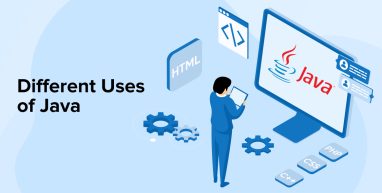
The popularity of Java has always remained strong because it has always been in demand. If you consider statistics, Java has been supporting multiple applications by providing various tools, enhancements, and consistent support from the software development community. Thus, there is no hesitance in using Java for real-world applications. Since Java can be used by anyone and anywhere, in the market there are many examples of using Java inr real-world applications. In this blog, we will see the different uses of Java to develop different applications.
1. Uses of Java in the Real World!
Java is a game-changing language for multiple businesses and has significantly contributed to the success of many leading enterprises. Businesses know that Java is a fundamental component in the development of Macintosh, Windows, and UNIX-based systems. From e-commerce websites to Android apps, from scientific applications to financial applications like electronic trading systems, Java is everywhere. From games like Minecraft to desktop applications like Eclipse, Netbeans, and IntelliJ. From an open-source library to J2ME apps, Java programming language is used in various real-world applications. When it comes to Java development, they play a crucial role in improving the functionality and performance of various software applications. Let’s take a closer look at each of them.
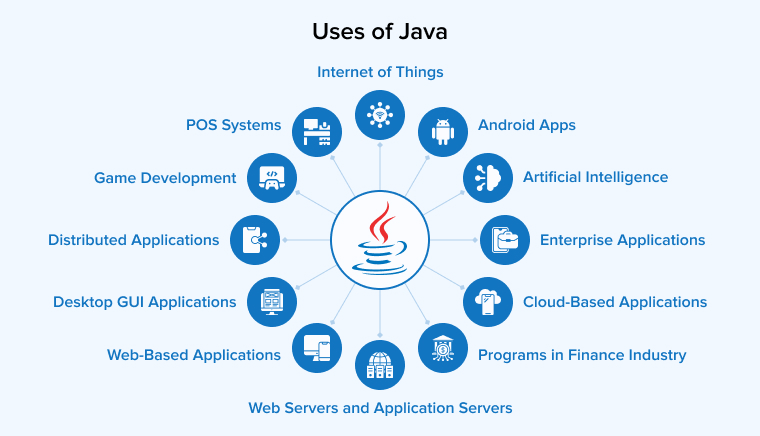
1.1 Android Apps
When it comes to mobile phones, Android, which is based on Java, is the most popular.
When it comes to mobile app development, almost every popular software is using Java technologies. Whether it’s productivity applications, payment applications, travel applications, or banking apps, they have an Android version. The gaming world covers a wide range of games from adventure video games to board game adaptations.
Java language has been the most obvious choice for Android app development and it is a versatile choice for businesses. One of the popular reasons for choosing Android is its simplicity and user-friendliness which has brought so many users.
1.2 POS Systems
Although Google has begun to use Kotlin as the primary language for Android, Java is still widely used. Java is ideal for developing applications for retail POS terminals. Android is the most common operating system for terminals. Java stands out as the most popular programming language for this platform. It’s also simple to scale up the terminal system owing to its phenomenon of operating – Write Once, Run Anywhere. Java developers can write the Java code just once and can run it on multiple systems.
1.3 Web-Based Applications
Java programming language is capable of building all types of web-based applications with multiple functionalities. It is because of the variety of features that Java offers through its libraries. The multi variance of Java includes frameworks such as Servlets, struts, JSP (Java Server Pages) and JSF (Java Server Faces), Spring, and Hibernate, along with web servers- such as Apache Tomcat, Apache HTTP web-server, Resin, Adobe JRun, and others. These tools support Java-based web application development.
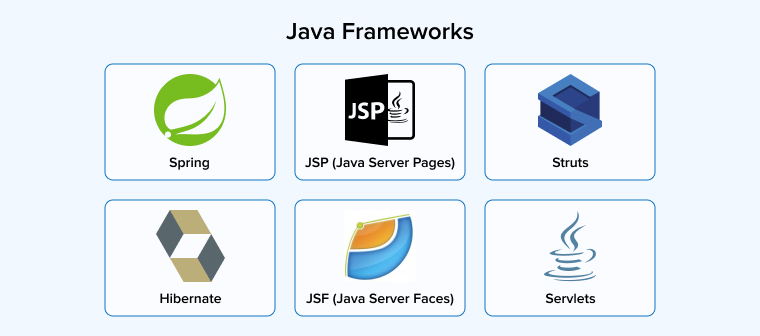
Java’s simple coding and excellent security make it possible to create a wide range of applications in the fields of health, social security, education, and insurance.
1.4 Enterprise Applications
The vast capabilities of Java fulfill the criteria for all types of enterprise applications. Thus, the Java programming language has become the primary choice for developing enterprise applications. Today, most corporate firms rely on Java due to its security features, power, and scalability. The Java Enterprise Edition is an API that provides software developers with the tools they need to build enterprise-scale, multi-tiered, scalable, dependable, distributed applications, including web services and secure network applications. Java’s robust memory management capabilities enhance the efficiency of these programs by automatically deallocating unnecessary memory.
1.5 Java Cloud-Based Applications
Cloud-based computing involves processing, managing, and storing data using off-site servers connected to the Internet. The Java cloud-based app operates on a pay-as-you-go model that allows you to replace all in-house local networks with cloud-based infrastructure. Cloud computing is commonly utilized in distributed computer systems. There are many Java cloud development tools available, such as the Oracle Java Cloud Service, which includes Oracle Java and other platforms as development tools for cloud-based applications. You can easily use Oracle WebLogic servers to create full-featured Java-based applications for a specific environment.
1.6 Distributed Applications
When the distribution of applications is dynamic, they are implemented differently. The systems and platforms they operate on have specific common requirements., Java, being one of the leading programming languages, offers various alternatives for developing these apps. Java-powered JINI -Java Intelligent Networking Infrastructure, is a specification-based system that handles the provision, registering, and finding of distributed services. JavaSpaces is a technique that facilitates the distribution and migration of apps within a network. An important feature of Jini is its support for distributed networks.
1.7 Programs in Finance Industry
In the financial sector, Java has long been the go-to software development option, and many successful banking applications and solutions are still used. One of Java’s significant advantages is its ability to run on any device. Java runs in a virtual environment that can launch the software from any location and uses the same code.
It has been a long time since the banking, finance, and insurance firms have utilized Java to develop their computing platforms. Java is popular for its well-structured nature, excellent data processing, and powerful security features. This makes it ideal for both traditional banking enterprise applications and cutting-edge FinTech firms.

1.8 Desktop GUI Applications
We can develop desktop GUI applications using Java, which offers support for the Abstract Windowing Toolkit, JavaFX, and Swing for generating the GUI-based desktop application. These tools provide pre-built components such as lists, menus, and buttons.
1.9 Java Web Servers and Application Servers
The strong Core Java ecosystem has provided growth to various Java web application servers. In the web server space, servlets such as Apache Tomcat, Project Jigsaw, and Rimfaxe Web Server (RWS) are used. Meanwhile, servlets such as WebLogic, WebSphere, and JBoss EAP have a strong presence in the commercial application server space.
1.10 Game Development
Popular game engines like LibGDX and jMonkeyEngine are written in Java. This makes Java an ideal language for developing games on both desktop and mobile platforms.
1.11 Internet of Things
Many programmers believe that Java is the most suitable language for creating Internet of Things gadgets. This is because it is largely a platform-independent programming language. As a result, you’ll save time because you only need to write your code once for it to run on multiple platforms.
The fact that it can be utilized for web development, Android development, desktop app development, and more positions it as the greatest option for Internet of Things projects. Compared to other programming languages, Java simplifies the integration of various technologies. Because of this, Java is used in applications like embedded electronics, medical devices, and car navigation systems.
1.12 Artificial Intelligence
Artificial intelligence (AI) and machine learning (ML) applications, especially data monitoring and interpreting tools, are being written in Java. Popular options for creating AI and ML apps include Java frameworks like Apache Spark, Deeplearning4j, and H2O.ai.
2. Why Java?
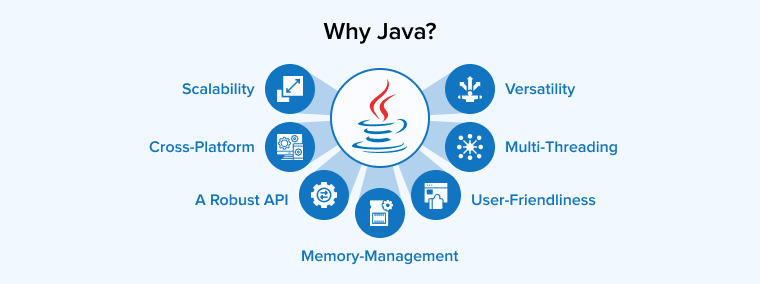
Explore the following benefits of using Java:
2.1 Scalability
The system’s capacity is increased by its scalability. By improving the system’s resources, capacity can increase without changing the deployment design. Scalability can be achieved by adding more resources to a single system, such as more memory or a faster processor. Its significance lies in the fact that it distributes work, boosts system performance, and maximizes output.
2.2 Cross-Platform
To be cross-platform, Java applications need to be compiled to operate on all systems. Ensure that JVM is installed in the system. When a Java application is compiled, the Java code is transformed into platform-independent bytecode. The JVM can interpret this bytecode, allowing any computer to execute it.
2.3 Robust API
Java’s Application Programming Interface (API) is extensive, offering many different methods available that can be directly use in any code.
2.4 User-Friendliness
Java offers a language similar to English, making it perfect for newcomers. Core Java can be learned initially, and then more complex Java can be learned afterward.
2.5 Versatility
Java has been the standard language for developing websites, mobile apps, and IDEs (integrated development environments) for a significant period.
2.6 Memory-Management
Garbage collection is the method that Java uses to manage memory. Memory management is not something we should worry about or handle manually. When the program no longer uses the objects, they are deleted automatically. This enhances the application’s performance.
2.7 Multi-Threading
A thread is a relatively lightweight process. With Java’s multithreading capabilities, many threads may run in concurrency. It makes the most efficient use of the CPU.
3. Companies Using Java
Pinterest, Google, Airbnb, Instagram, Spotify, Uber, and Netflix are just a few of the numerous firms that include Java in their technology stack. To assist you choose the best programming language for your next project, we have included a list of companies and ventures they have created.
3.1 Netflix
Netflix is a major entertainment provider all over the world, allowing online access to films and TV shows. Java is used in the majority of Netflix’s software. The majority of the applications for Google’s Android and Android TV platforms are built in Java, alongside some C++ for certain components.
3.2 NASA Word Wind
NASA built its Word Wind virtual globe using Java to showcase geographical data in complete 3D. It creates 3-dimensional representations of the planets using images captured by NASA satellites.
It’s cross-platform, proprietary, and open-source software is written in Java. The OpenGL application programming interface is used in this project to generate GPU-interactive 2D and 3D visuals. The GPS add-on shows real-time information like weather conditions, earthquake epicenters, and more. This program allows users to set layer visibility, observe angles, conduct searches using geographical names, and more.
3.3 Minecraft
The popular Java-based video game Minecraft has gained a large fan base. At the moment, Java version 1.8 is the default programming language used by the game.
3.4 Spotify
Spotify, a well-known music streaming service, uses Java to run its web app, log data, stabilize data, and send information. The Spotify Android app is developed using Java.
4. Conclusion
Finally, we have reached the end of the blog which gave us insights into Java and how it is present in the real world for developing web applications. Java is a completely portable language. You can use the Java environment for your application across various platforms, not just limited to specific ones that are already launched. It supports not only smartphones but also any other computer because the language runs on a virtual machine JVM. You can install JVM on any device, regardless of the operating system. Java virtual machine also supports interoperability with other programming languages such as Scala, Kotlin, and Groovy. Java has been working regardless of the domain, and industries of company size. One of Java’s key features is its scalability and adaptability, making it a popular choice for businesses of all sizes across different industries.
FAQ
What are the Main Uses of Java?
Java can be used for many things:
- Video games
- Artificial intelligence
- Internet of Things
- Web-based programs
- Mobile apps
What are the 5 Advantages of Java?
- Java is a programming language that is characterized by its community-driven nature.
- Java is well-known for its exceptional speed and high-performance capabilities.
- Learning Java is considered to be quite simple.
- The process of adding new features to Java is characterized by a rapid pace.
- Java supports functional programming approaches as a computer language.
Where is Java Most Commonly Used?
Java is widely used in the development of enterprise-level applications, including banking and commercial systems, e-commerce sites, and healthcare services. Java is often regarded as the preferred programming language for the development of Android applications.


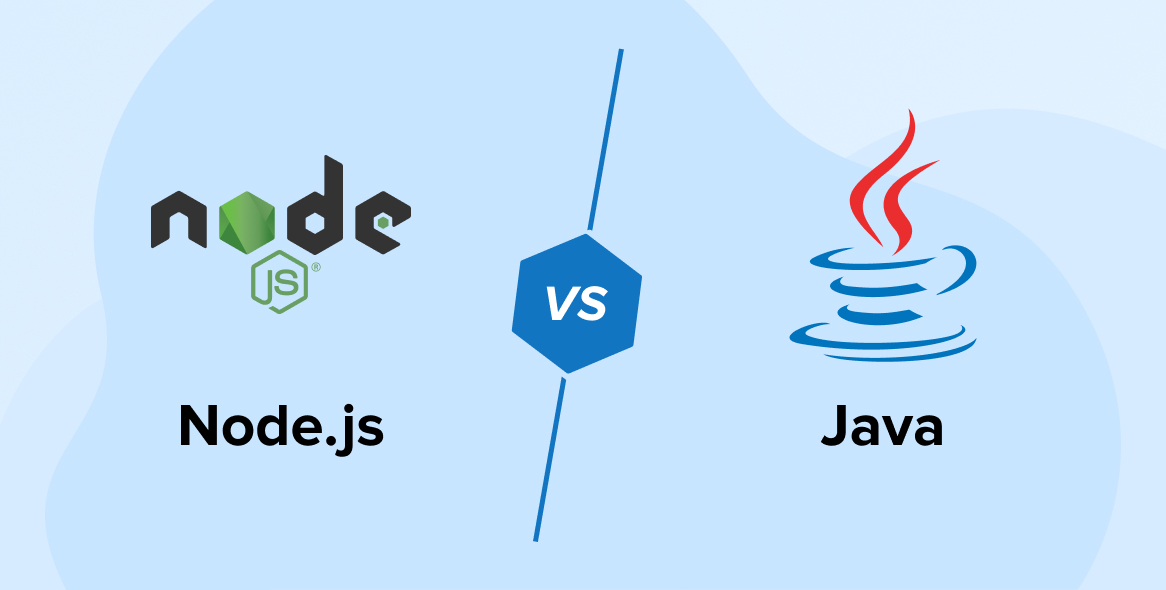
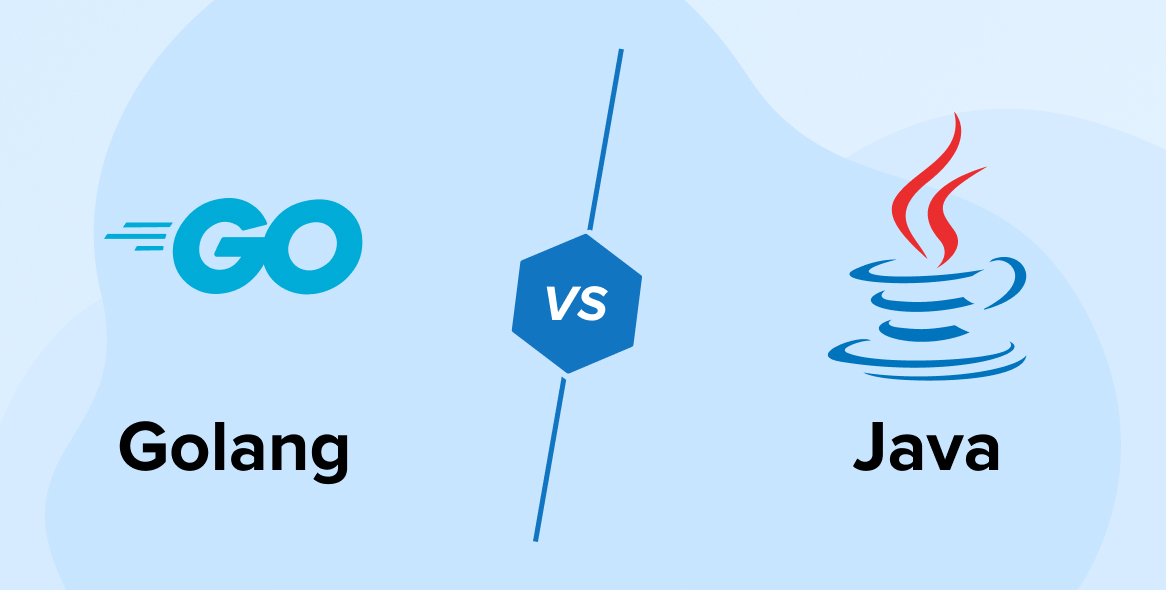
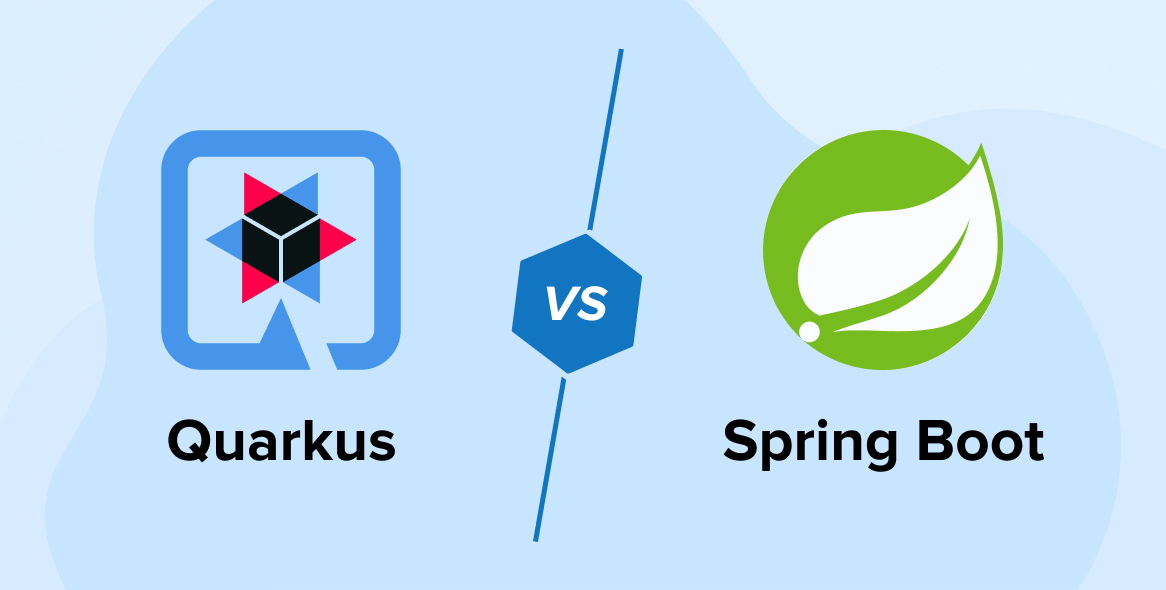

Thank you for sharing this detailed insight on use cases of Java. After reading this article, I got to know how Java can be useful in different applications, including web-based applications, Java mobile applications, Android apps, POS systems, desktop GUI applications, etc. Scalability and adaptability are two features that increase Java's popularity.
This blog highlights Java's popularity as a programming language and how it is used in the real world, like in e-commerce websites, Android apps, scientific applications, and financial applications. Thanks for sharing.
This blog provides an excellent overview of the diverse uses of Java in various domains. It's amazing to see the wide variety of applications where Java has been shown to be a strong and versatile programming language.
I discovered a lot about Java through this blog, including how it's used to develop web apps in the real world. The uses of Java that are mentioned in this blog are very informative and helpful. Keep Sharing!
This article describes that Java is an object-oriented programming language; it separates everything down into objects with specific amounts and capabilities, making it easier to handle the complexity of real-world applications. Java’s one quality that makes it a global preference is its scalability and adaptiveness, which drive many businesses to opt for Java.
After reading this article I can say Java is a very versatile language that can be used to develop a wide variety of applications, from web and mobile apps to desktop software and enterprise systems. This makes it a good choice for businesses of all sizes and in all industries.
Great read! This article Covers real-world Java uses and Also mentions giants like Spotify, Minecraft, Netflix, Android, and even NASA's World Wind.
This blog provided me with valuable insights into the practical applications of Java in web development. Java's popularity and portability make it a versatile language in the real world. Thank you for sharing your knowledge!